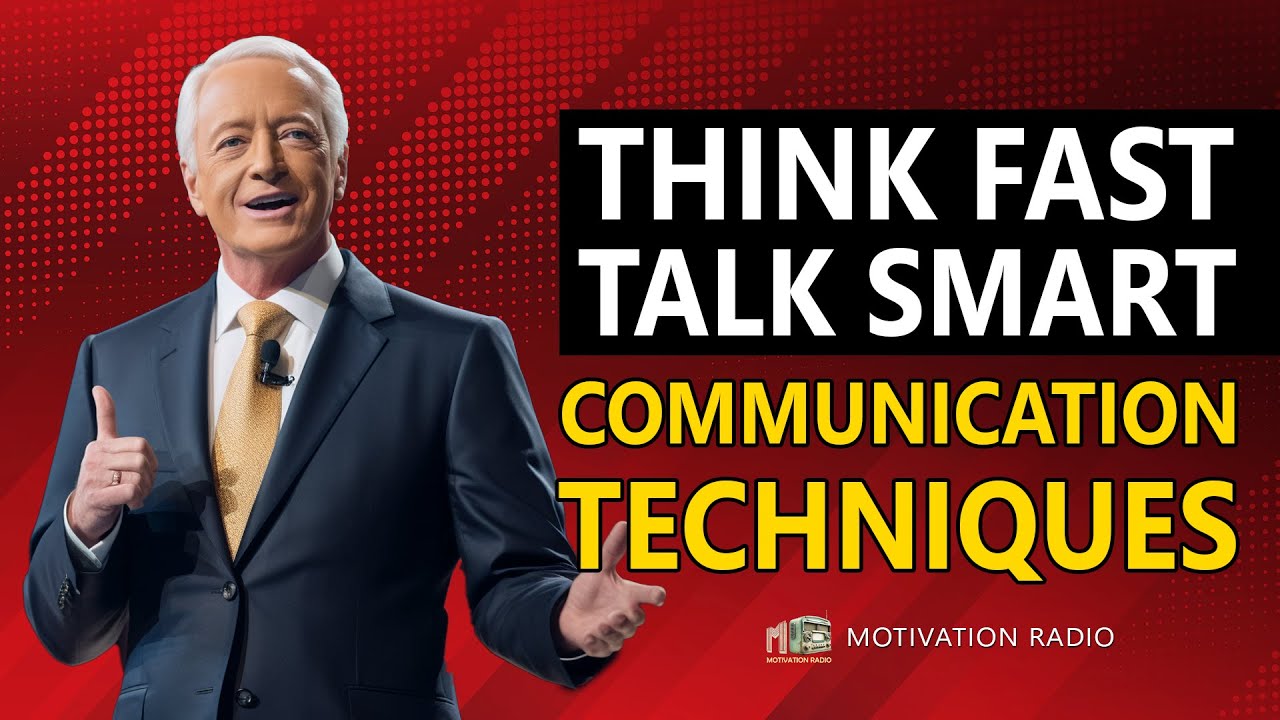How to Speak so That People Want to Listen - Julian Treasure
Summary
TLDRThe speaker emphasizes the power of the human voice in communication, highlighting the lack of formal education in speaking and listening skills. They discuss the impact of context on communication and the importance of effective speaking in personal and professional life. The talk identifies four 'leeches' that detract from powerful speaking and contrasts them with the four foundations of 'HAIL': honesty, authenticity, integrity, and love. The speaker also explores various vocal tools and techniques to enhance speech, such as posture, breath control, and the use of silence, advocating for conscious listening and speaking to foster better communication.
Takeaways
- 🗣️ The human voice is a powerful tool capable of starting wars or expressing love, yet it is often undervalued and not formally taught as a communication instrument.
- 🏫 There is a significant disparity in the education system's focus on teaching reading and writing versus speaking and listening skills, with the latter often being neglected.
- 🌐 In the digital age, communication has shifted towards text-based formats like email and social media, which diminish the importance of oral communication and listening.
- 🔍 The speaker emphasizes the importance of context in communication, noting that it is often overlooked but plays a crucial role in effective speaking and listening.
- 💡 The speaker introduces a model of human communication, highlighting the complexity of sending and receiving messages and the need for conscious effort in both.
- 🚫 The 'seven deadly sins' of speaking, which include gossip, judging, negativity, complaining, excuses, exaggeration, and dogma, are behaviors that can undermine the power of one's speech.
- 🔑 The speaker identifies 'HAIL' (Honesty, Authenticity, Integrity, Love) as the four foundations for powerful speaking, suggesting that these qualities can enhance the impact of communication.
- 🎼 The script discusses the 'vocal toolbox,' including aspects like posture, breath, register, and volume, which are essential for effective speaking but often go untaught.
- 🔄 The speaker suggests that understanding and adjusting one's speaking style to the listening environment can greatly improve communication effectiveness.
- 🤔 The importance of being aware of one's own communication style and the listening environment is highlighted, as well as the need for conscious effort in both speaking and listening.
- 🌟 The script concludes with a call to action for more conscious communication, suggesting that by paying attention to how we speak and listen, we can create a world where sound works for us rather than against us.
Q & A
What are the four communication modes mentioned in the script?
-The four communication modes mentioned are talking, listening, reading, and writing.
Why is it considered a tragedy if a child leaves school unable to read or write, but not if they are unable to speak effectively?
-It is considered a tragedy because of the societal emphasis on literacy, but effective speaking is often overlooked despite its importance in communication.
What is the speaker's main focus in the script regarding communication?
-The speaker's main focus is on the sending end of communication, specifically the importance of effective speaking in various contexts.
What does the speaker suggest about the modern communication protocols like email and text messaging?
-The speaker suggests that modern communication protocols tend to promote personal broadcasting rather than genuine conversation, which can hinder effective listening and speaking.
How does the speaker describe the importance of voice recognition and speech synthesis technologies?
-The speaker highlights that these technologies are becoming increasingly important, indicating a future where conversation and listening will be more valued.
What are the 'seven deadly sins' of speaking as mentioned in the script?
-The 'seven deadly sins' are gossip, judging, negativity, complaining, excuses, exaggeration, and dogma, which can diminish the power of one's speech.
What is the emotional base that the speaker identifies as the root of the 'seven deadly sins' of speaking?
-The emotional base is fear, which can lead to behaviors that undermine the power of one's speech.
What are the four 'leeches' on powerful speaking that the speaker discusses?
-The four 'leeches' are the desire to look good, being right, people pleasing, and fixing, which can detract from the effectiveness of one's speech.
What is the acronym 'HAIL' stand for in the context of the script?
-HAIL stands for Honesty, Authenticity, Integrity, and Love, which are the four foundations for powerful speaking.
What are some of the vocal tools the speaker suggests considering for effective speaking?
-The vocal tools include posture, breath, register, tambor (texture of voice), pace, pitch, prosody, volume, and silence.
How does the speaker define 'semantics' in the context of communication barriers?
-Semantics refers to misunderstandings that can occur due to language or cultural differences, which can hinder effective communication.
What is the speaker's suggestion for dealing with strong emotions during communication?
-The speaker suggests that listening can help diffuse strong emotions, as there is an inverse relationship between listening and being upset.
Outlines

This section is available to paid users only. Please upgrade to access this part.
Upgrade NowMindmap

This section is available to paid users only. Please upgrade to access this part.
Upgrade NowKeywords

This section is available to paid users only. Please upgrade to access this part.
Upgrade NowHighlights

This section is available to paid users only. Please upgrade to access this part.
Upgrade NowTranscripts

This section is available to paid users only. Please upgrade to access this part.
Upgrade NowBrowse More Related Video

114. Communication Means Paying Attention: The Four Pillars of Active Listening

Hubungan Keterampilan Berbicara dengan Keterampilan Berbahasa Lainnya oleh Dr. Dalman, M.Pd.,

Brian Tracy Best Advice on Mastering The Art Of Effective COMMUNICATION | How Successful People Talk

DASAR KOMUNIKASI KANTOR - Materi Dasar MPLB Elemen 7 Bag. 4

Lesson 1: Importance and Definitions of Communication | Communication Skills/Business Communication

KETERAMPILAN BERBAHASA ( HUBUNGAN KETERAMPILAN BERBAHASA )
5.0 / 5 (0 votes)